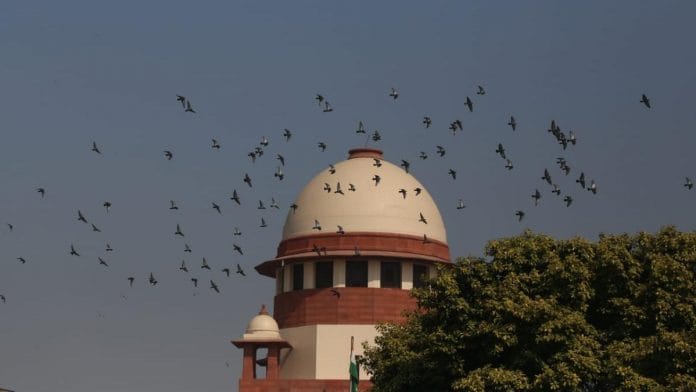New Delhi: The Supreme Court Thursday refused to grant permission for Muharram processions in the country, saying it could lead to chaos and targeting of a particular community for spreading Covid-19.
The bench, led by Chief Justice of India (CJI) S.A. Bobde, declined to entertain a public interest litigation (PIL) by Syed Kalbe Jawad — a Shia cleric from Lucknow — who sought permission to carry out Muharram processions in a limited manner amid the pandemic.
“If we allow this, there will be chaos and one particular community till be targeted for spreading Covid. We do not want that,” the bench said, in an apparent reference to the Tablighi Jamaat controversy.
The bench, also comprising Justices A.S. Bopanna and V. Ramasubramanian, gave Jawad liberty to approach the Allahabad High Court for specific directions.
Jawad had cited the top court’s order in the Jagannath Rath Yatra case — where devotees were allowed to hold a procession, subject to stipulations framed by the state. He also referred to the court’s recent decision of allowing three Jain temples in Mumbai to open during the Paryushan festival.
The bench, however, told Jawad he cannot compare his case with the other two. “In both, the petitioners had limited prayers. We cannot pass general directions. Ganesh Chaturthi was not allowed in Tamil Nadu,” the CJI added.
Jawad’s plea to let processions in Lucknow on the grounds that a large percentage of the Shia community resided there was also turned down. For this, the bench said, he should approach the Allahabad High Court.
Also read: Dawoodi Bohras bring mosque home this Muharram, praying with family during Covid
‘Don’t treat Jagannath Rath Yatra, Paryushan festival as precedent’
Jawad had moved the top court for its intervention in the matter owing to restrictions that are in place on large gatherings because of the pandemic. He wanted the court to allow processions to take place in a limited capacity, with only five persons participating in it.
During the last hearing, on 25 August, the bench had asked Jawad to array all states as parties in the petition. It said no order will be passed without receiving inputs from the states.
Court orders in cases related to the Jagannath Rath Yatra and the Paryushan festival were pointed out by the bench. In both cases, the top court had clarified that its orders shall not be treated as a precedent.
Jawad’s counsel had, however, insisted the court hear him, submitting that the ritual was performed every year and that he was asking the court to permit participation of just five persons from the community. To this, the bench had shot back, “But Covid is not there every year.”
Also read: How a 3-yr-old boy in Maharashtra made his Muslim parents celebrate Ganpati festival at home






